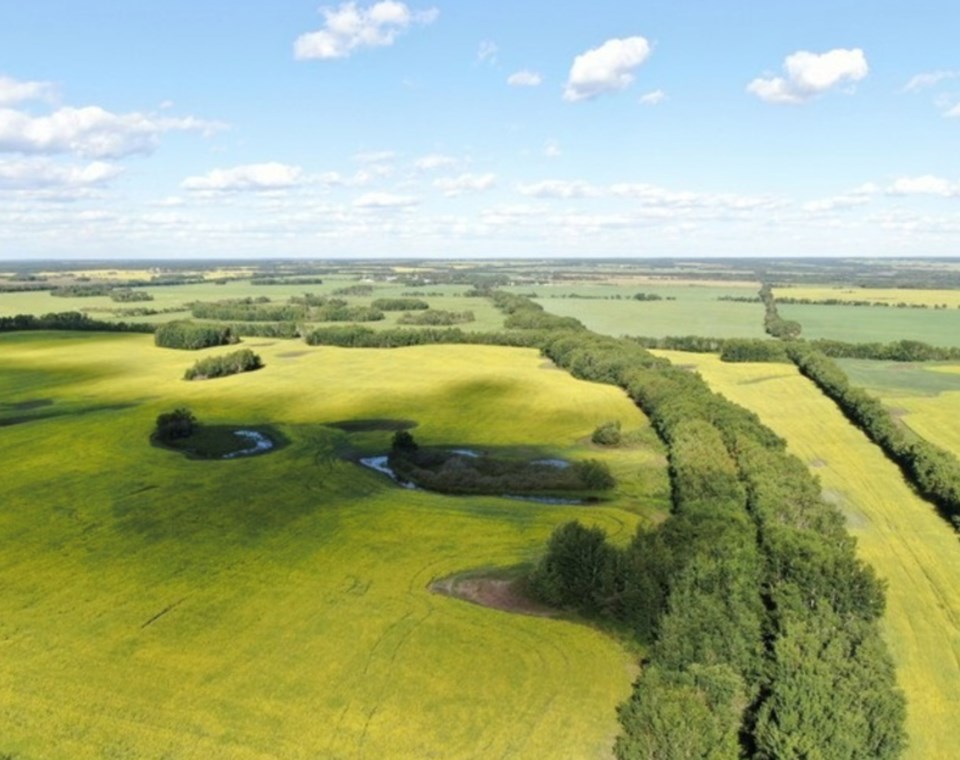For decades, everybody looked at a piece of land before they bought it.
Farmers wanted to see the terrain and the bluffs of trees, understand how the field would drain and maybe even touch the soil.
Today, more buyers are purchasing farmland based on the images from a screen.
“Certainly, the world has changed when people will [purchase land] by watching a video … without actually walking on the land,” said Roy Carter, chief executive officer of CLHbid.com, an online tender platform to market and sell farm and ranch land in Western Canada.
The CLHbid.com website features detailed information about parcels of farmland for sale and videos, shot with a drone, showing the field from multiple angles.
When buyers use CLHbid.com to purchase land, they bid by clicking a mouse or tapping on their smartphone.
Buyers and sellers have become more comfortable with online transactions for farmland, partly because public auctions are public.
“People like to do business in privacy and we get really good feedback, where our buyers are buying the privacy of their own home,” Carter said. “They [buyers] want to bid in confidence. They want [assurances] that their name doesn’t get out if they don’t get it.”
Others in the auction trade are witnessing the same trend.
Buyers are spending hundreds of thousands of dollars on farm equipment or millions on land, while sitting at their kitchen tables.
“On-site participation has been declining, not just recently, but over the past 10 to 15 years,” said Jordan Clarke, sales director for Ritchie Bros. in Rouleau Sask. “When I first got into this business 13 years ago, a big auction would have 800 or 900 people on site. We just don’t see that anymore. We still have as many or more bidders, but they’re nearly all online.”
All farmland and equipment auctions were solely online during COVID-19 restrictions on public gatherings, but they remain popular after rules lifted.
“The farm auctions across Western Canada… have all went online with electronic tender,” Carter said. “I think that trend… will be here to stay, once people get accustomed to it.”
Online auctions, where someone bids while sitting on their couch, can’t duplicate the atmosphere of a public auction, but online is becoming the only way to sell for many landowners.
“We have always done online auctions due to the remote locations that most of our properties are located,” said Stacey Gustafson, a project administrator at Hansen Land Brokers Inc., which specializes in western Canada farmland auctions.
How does an online auction work?
Regardless of the platform used, to be classed as an online property auction, it operates under the same legal framework as a traditional real estate auction. So, an auctioneer is required, there is no cooling-off period, and the bidding process is transparent.
Here’s the basic steps involved in participating, courtesy of Openn, an online platform for real estate auctions.
1. Submit an opening bid and get qualified. Interested buyers find the property they’re interested and enter a starting price. They will be asked to complete terms for the owner’s consideration, which can include level of deposit, settlement date, and any other terms that can be flexible. Once the vendor agrees to your terms, the pending price becomes live on the property, and the buyer is allocated a unique paddle number, making them qualified.
2. Compete further and track the negotiation. Once qualified, buyers can see the paddles representing other qualified buyers, the current highest bid, the final bidding stage date and a bidding timeline. They can improve their price at any time or sit tight for the final stage. Buyers can track the bidding through real-time updates, via messages or email – always keeping them in the loop.
3. Bid before the clock runs out. If there is enough buyer interest, the agent may elect to bring the final bidding stage forward, which wraps up the online auction and brings negotiations to a close. Under a countdown timer, buyers decide if they wish to continue bidding. Each time someone improves their bid, or the bid increment is adjusted by the agent, the countdown timer resets. This gives competing buyers time to place another bid. The agent can pause the negotiation at any time to speak with the seller or another buyer.
4. Finalise the sale. If the property hits reserve and no other bids are placed, then once the clock runs out, the virtual hammer falls and the property is awarded to the highest bidder. The auctioneer transfers the winning buyers’ specific terms to the final contract and executes on their behalf. If the property has not met reserve, then the property is passed in and the agent can continue negotiations.



